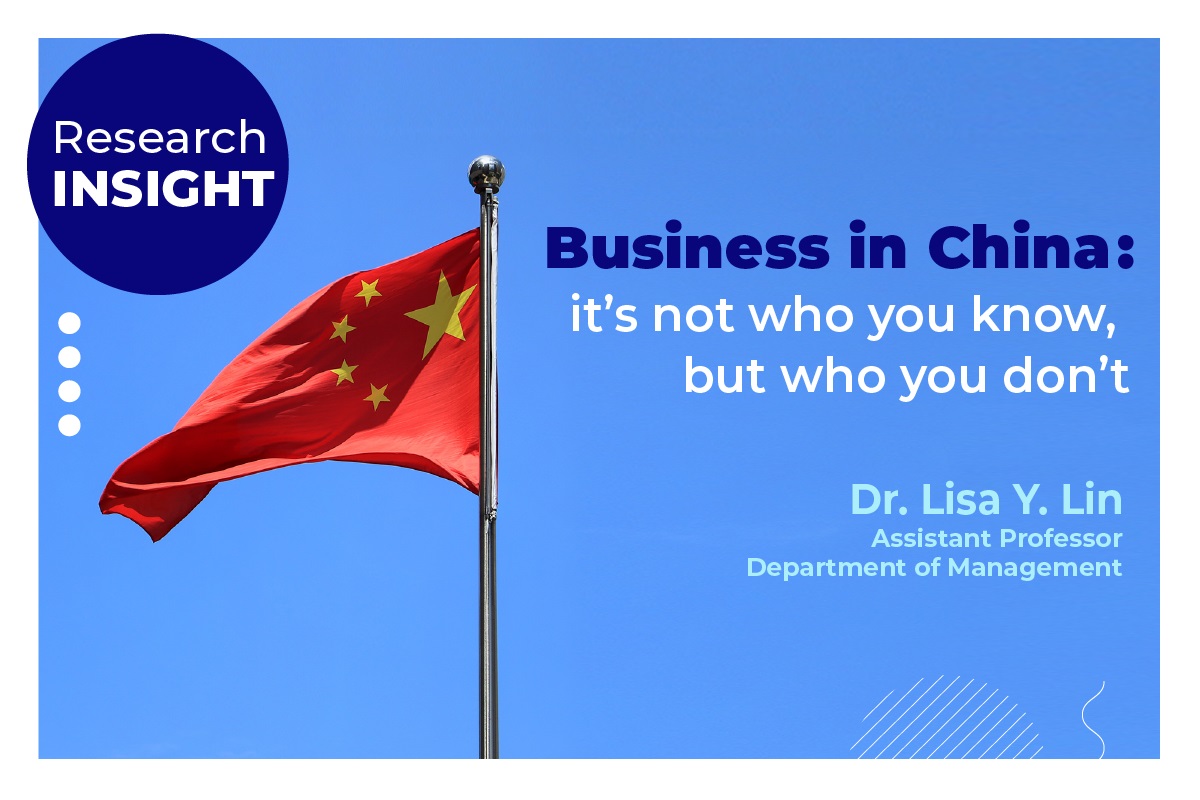School of business - research
Business in China: it’s not who you know, but who you don’t


As China and the United States fight a costly trade war while the world grapples with COVID 19, politics is making a comeback. Now that governments from Canada to Australia are reasserting their importance, what should businesses expect from this political risk resurgence?
The answer may lie in China. In “Does politician turnover affect foreign subsidiary performance? Evidence in China”1, researchers explore how “politician turnover” impacted the subsidiaries of foreign multinational companies (“MNCs”) with sales of RMB 5 million and above across 310 Chinese cities between 1998 and 2007. Conclusion? Local politicians matter!
Historically, political risk studies concentrated on macro topics like foreign direct investment regulations and MNCs taxation. Here, the authors chose to focus on measuring the impact of actual politicians on MNCs, assessing how changes in local political leadership, by creating uncertainty, enhanced the information asymmetry existing between MNCs and host-country’s politicians. Essentially, the management of a European MNC operating in Southern China is unlikely to have any insights about the priorities of a politician recently transferred from Anhui to Guangzhou. Yet, whether through re-interpreting laws or renegotiating their predecessors’ commitments, these newly-appointed politicians can wreak havoc on carefully-laid business plans as they strive to make their marks.
Because political turnover is a core feature of the country’s governance system, the potential for political disruption is particularly acute in China. Senior cadres compete for ranked positions nationwide in order to accumulate power and personal benefits as they climb to the top. They need to do it fast too: mandated to rotate across departments and locations every 5 years, they must retire at 65. They also appoint subordinates to deal with local matters, putting further pressure on MNCs.
The study demonstrated that the turnover of political secretaries – a senior position- significantly impacted the performance of MNCs: firms located in cities that underwent political turnover were 1.28 more likely to fail (defined as significant drop in sales, closure or divestment) than firms operating in more stable cities. Where MNCs survived this political shock, they still saw total factor productivity fall to 0.98 times less than that of MNCs operating in a stable environment.
Politician turnover does not always trigger adverse consequences. Likely due to existing relationships, internal promotions - where a politician got promoted within the same province - had no major impact for MNCs. Likewise, MNCs working with local joint venture partners proved more adept at navigating political transition unscathed. Finally, MNCs located in provinces with higher market intermediation did better than those based in less developed provinces. It seems lawyers, accountants and trade associations make for more stable business conditions.
With “laissez faire” retreating globally, the importance of politicians is bound to rise. If China carries a lesson, it’s that ambitious politicians may impact your business. While connections may help, businesses appear better off operating in regions where institutions matter more than personality and due process prevails over arbitrariness!
Reference:
1 Zhong, W., Lin, Y., Gao, D., & Yang, H. (2019). Does politician turnover affect foreign subsidiary performance? Evidence in China. Journal of International Business Studies, 50(9), 1184-1212.